Whump. Just like that, my car had a new cute little dimple, right in its front bumper.
Its old front Texas license plate â the only remaining outward sign that this vehicle was a foreign import, and not of this world â was now crunched. And in the moments that followed, in the cold and drizzling rain, while a friendly police officer took my and the other driverâs information, I as a citizen of this old world had at least four options:
- Swear, pound the wheel, later pound other things in my imagination, and rail against the universe, which is really a rail against its Creator, for this misfortune. This was my car, after all â even if I sort of inherited it from my Texan wife â and the universe (read: its Creator) had no right to do that to my stuff.
- Peacefully acknowledge that in the grand scheme of things, this car really did not matter. It belongs to God, and in the end its parts are destined to burn anyway.
- After initial sin, and repentance, thank God that Iâm perfectly fine, and no one got hurt, and that the car took it on the chin. Meanwhile, this car is Godâs car, not my own; Iâm only its steward. It is indeed only a God-given thing, to be used for His glory. My wife and I began reading The Fellowship of the Ring in this car. On the way to our honeymoon. So if those memories, or anything else, involving this car would remind me of Him â as an act of Christ-worship â nothing would keep Him from resurrecting it, even a dented-up Mercury Sable, on the New Earth.
- Take solace in the fact that material objects can be used for good or evil, such as cars, money, or creative works such as stories â and then, if God removes them or decides never having them is best for us, resenting Him for that divine choice. If you really loved me, Jesus, youâd let me keep that Thing. Yes, I know you could bring it back later, to glorify Yourself, but I âdonât! care! how â I want it nowww.â
Worship with things, not of things
 As you may have guessed, I had a hard time writing number 4. Not only does it violate Scripture, of course, it just doesnât make sense. Thatâs because materialism ultimately makes no sense. God owns everything. This is His world, where He keeps His stuff.
As you may have guessed, I had a hard time writing number 4. Not only does it violate Scripture, of course, it just doesnât make sense. Thatâs because materialism ultimately makes no sense. God owns everything. This is His world, where He keeps His stuff.
Those who believe that Things, such as human creations like stories, will last beyond this world â based on their New-Earth study, or even extra-Biblical speculation about the After-world â will find no greater justification for selfish materialism than they would find with another view that is similar to âletâs just leave all those topics alone.â
Thatâs not to say that pondering the New Earth will resolve all materialism. Of course it wonât. After all, following the car crash, I went through option 1 almost verbatim, before arriving (mostly!) at option 3. Sin came up from within and whispered, Hey, thatâs your car, and you donât deserve this wrong. In this life I doubt weâll ever defeat all temptations to think of Things as our own stuff, not Godâs (theyâre not even âon loanâ from Him!).
So how to fight materialism, specifically in regards to the stories we love. Might we love them too much? In one respect, yes, but if we mean âloveâ by Godâs definition â His love, through which we can love great stories only because they remind us of Him â that is an impossible question. One cannot righteously âloveâ anything too much.
It seems that we have two possible solutions to keeping our story-love in perspective:
- Enjoy stories, but think that thereâs no need to ask if theyâll last beyond this life.
- Enjoy stories, and recognize that if God wants to preserve them forever, He will.
Differences between these views â based on the broader underlying beliefs â has led to some friendly disagreements throughout this series! In my view, though, either set of beliefs is vulnerable to being hijacked by materialism.
For no. 1, materialism could take this guise: stories wonât really matter in eternity, so make sure you get what you can in this life.
For no. 2, materialism could sneak in this way: if material things and creations are good, then hang onto them as much as you can â God would never take them from you!
Either way, sin never creeps in unless it has some existing truth to twist. And any truth can be twisted into some kind of sin, such as materialism â whether the goodness of stories, the love of God, the wrath of God, the need to study apologetics, the need to feed or care for the poor, the need to warn against materialism, or the need to study what Scripture has clearly promised us about the New Heavens and New Earth.
If someone sins while studying those particular Biblical truths, and basing speculations upon them, the sin is not in the studying, or even the speculating. Similarly, readers here may know that one cannot rightly or reasonably blame speculative stories just because someone else wrongly used them to justify âescapismâ or other wrong beliefs.
Godâs Word, and truth, do not cause sinful behavior. Nor does anyoneâs sin, or potential sin, mean we must ignore what it says about a particular topic.
Rather, sin abuses truth to justify materialism, or asceticism, or whatever.
Those are sins we must avoid. Yet as weâre doing that, we also worship God, in this Old Earth, in many different ways â and one of those ways is our speculative stories.
Will this form of worship expire in the New Earth?
Nothing in Scripture suggests it will, and in fact many texts endorse ancient and modern things, such as ships, trade, precious metals, trees and nature, continuing as means by which we enjoy and worship (they are the same task!) our wonderful Savior.
Last week, I overviewed four reasons to support eternal stories, based on Scripture â most in the Old Testament â and suggested further reading. Now letâs go forward, and also finish this series. Why else we can anticipate that our good God, if He wanted, could preserve stories for His glory?
Fifth: because our God is a God not of eternal annihilation, especially of good things that would continue to honor Him, but of resurrection.
5. God is a God of resurrection.
- Christ died. His body, the same one in which He died, rose again. That means that actual atoms, DNA, cells, torn muscles and skin (save for a few exceptions, in His hands, feet, and side!), whisked back together, repaired, reversed their decay. Maybe they were supplemented â not 100 percent replaced! â with new material or powers. Then in that body, He departed the tomb. He visited others. He walked, ate, and drank. Later, he ascended. And He is still in that resurrected body. âThere is one mediator between God and men, the man Christ Jesusâ (2 Tim. 2:5). Note the present tense: is. He is still a Man, still flesh and blood â not the corrupt âflesh and bloodâ (an idiom for fallen flesh) in 1 Cor. 15:50 Â that canât inherit the Kingdom, but an imperishable, redeemed flesh and blood.
-
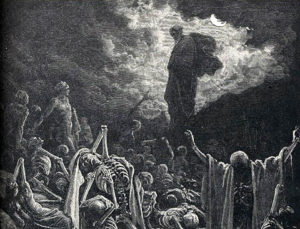
Perhaps the most beautiful image of resurrection in all of the Old Testament.
We will die (barring Christâs return first). Our souls will then be present with the Lord (2 Cor. 5:8), for a temporary separation. Though weâll be joyful, weâll also await being âfurther clothedâ (2 Cor. 5:4) with an immortal body, a âspiritual bodyâ (1 Cor. 15:44), supernatural, powered by the Spirit. At that resurrection, will all those bodily components â molecules, cells, skin particles â be pulled up in supernaturally flown streams from the earth, to reassemble? We donât know, but we do know that there will be some kind of continuity. The old body died, like a seed in the ground. The old body was mortal, perishable. From it will come the new body, immortal, imperishable, and of the Spirit. âFlesh and blood cannot inherit the kingdom of God,â Paul says (1 Cor. 15:50, then clarifies with a parallel: ânor does the perishable inherit the imperishable.â Corrupt, perishable flesh and blood will become imperishable, redeemed flesh and blood.
- Creation will die. At present itâs groaning (Romans 8: 18-25), and waiting âwith eager longingâ for Godâs people to be revealed, in hope âthat the creation itself will be set free from its bondage to corruption and obtain the freedom of the glory of the children of Godâ (verse 21). (Note the contradiction to annihilation or replacement!) The âcreation itself,â this same planet, will first die (2 Peter 3:10), then be resurrected. Very much like Christ. And very much like us.
If we in our resurrected bodies will not only worship Christ in some vague fashion, that is, a âbeatific visionâ of only gazing at His face in wonder or singing, but also in âearthlyâ things like trade, farming, or other jobs (as in Isaiah 60) â we find even more support for anticipating newer and even better stories in the After-world, alongside the ones we now enjoy in our worship of Christ.
6. âRestingâ from real-world wonders on New Earth to enjoy stories would be little different from resting to enjoy Scripture.

Now comes some of the practical questions, based in resurrection truth, but also based in some extra-Biblical speculation. The first of these goes something like this:
Why would we want to âstay inside all day,â reading stories, when thereâs an amazing world to explore and other things to do in our worship of Christ?
The same question could be asked about Scripture itself, the Word that God has clearly promised to preserve forever (as discussed in part 3). Why would we want to read that? I suggest: for the same reason we want to read the Old Testament now. Yes, that first Covenant is fulfilled, but we still find new truths, embedded in its words, which we had not seen before. It also reminds us of what wonders God did. The fact that He works wonders in the present doesnât (or shouldnât!) make us bored with Him in the past.
Thus, surely weâll find time in New Earth for varying levels and forms of worship. One day, or over several hours, we might design a building, or feast with friends, or go on some incredible journey, in worship. Then another day, or another series of hours, we might ârestâ (though itâs all a rest!) and relax. We might read His Word. Or another great story, about our present world, or imagined worlds, or Old-Earth battles and victories.
Letâs get more specific. Imagine the most vivid, fantastic, yet Biblically allowed picture of New Earth you can imagine. Iâm talking here new creatures, exciting missions, and uncharted frontiers on other planets or galaxies. Now, is there no possible way that God, our infinite God, could create even more wonders beyond our wildest imaginations?
Weâll keep trying to imagine what He could come up with next. Heâll keep blowing us away. And for eons upon eons, in the redeemed universe with its capital planet, weâll keep worshiping Him for it, even as we reflect His role as Creator in our subcreations.
7. If we assume any evil echoes or reminders couldnât belong in eternity, that would also apply to the Bible.
Stories require conflict. The New Earth wonât have any. How would stories even work?
 First, Iâd question that New Earth will have no conflict, that is, disagreement. What we know it wonât have is sin that results from it. For example, author Randy Alcorn offers:
First, Iâd question that New Earth will have no conflict, that is, disagreement. What we know it wonât have is sin that results from it. For example, author Randy Alcorn offers:
Because weâre finite and unique and because weâll never know everything, we may not agree about everything in Heaven. [âŚ] Some of us will have insights others donât. Some will have a better understanding in one area, others in a different area. Our beliefs can be accurate but incomplete, since weâll not be omniscient. [âŚ] C.S. Lewis, J.R.R. Tolkien, and other friends in their group called The Inklings often argued ideas with each other. [âŚ] Could they even say, âLetâs think and talk to the King, approach an angel or two, bounce our ideas off Paul, Luther, and Augustine, and then meet again and share what weâve learnedâ?
[âŚ] Even though Christâs insights would be absolutely accurate, that doesnât mean weâll always fully understand them. God has made us learners. Thatâs part of being finite.
From Heaven, pages 348-349
That will make things interesting â and delightful! Even now, though, we might picture some of what that could be like, because in Christ, Christians can have disagreements about issues, and lovingly agree to disagree, and mean it.
So what about our stories? Those would seem to require antagonists who donât disagree agreeably, at least, so we think, from our limited Old-Earth perspective. But could some genius author create a new genre that doesnât require traditional villains or opposing causes, which is still just as entertaining and honoring to the God who had long since defeated all real-life villains? With renewed minds, could we more easily appreciate a story for its Christ-exalting truths and beauties, even without action, conflict, or battles?
That was my secondary argument, put first. My primary reminder is that, again, weâll have Godâs Word on the New Earth â a Word that not only reminds us how we got there, but of sin, violence, or untruth. Therefore, one canât consistently claim that even Old-Earth-style stories that do have evil elements would automatically make us sin. The Bible wonât do that, and we know it will last forever. And again, we also know that Scripture, and manmade stories with evil reminders, donât even always make us sin here. How much more, in that redeemed universe, will we see the sin in glorious God-given perspective, recalling what it was like, and praise God for His deliverance?
8. Imagine the possibilities.
Now comes the end of this series, and this column (which I admit is extended-length, due to the Christmas season and other ideas, coming up!).
Iâm curious about your thoughts throughout; your beliefs, past and present, about the After-world; and your hopes for how we may honor and praise our perfect, magnificent Savior after He brings His New Heavens to New Earth, to dwell with mankind (Rev. 21).
With what speculative stories do you worship Christ now?
Which speculative stories would you love Him to resurrect, if He chooses?
What kinds of worshipful stories do you imagine we might create on New Earth?
Knowing that could happen, what would you change about those stories now?
Knowing what He has promised in the New Earth, how might that change our lives on this old one? How does it change our stories? Do we cling to them as if Things are all we want, or as if weâll only get them in this world? Or do we hope to see them in eternal perspective, trying to be Heaven-and-New-Earth-minded so weâre of earthly good?
Soli Deo Gloria!
 Susan Mitchell thought she was an ordinary homemaker. She was wrong. When sheâs pulled through a portal into another world, she finds a nation grappling for its soul and waiting for a promised Restorer to save their people.
Susan Mitchell thought she was an ordinary homemaker. She was wrong. When sheâs pulled through a portal into another world, she finds a nation grappling for its soul and waiting for a promised Restorer to save their people.
 Sharon writes âstories for the hero in all of us,â about ordinary people experiencing Godâs grace in unexpected ways. Known for their authenticity, emotional range, and spiritual depth, her novels include contemporary fiction such as The Secret Life of Becky Miller or Stepping into Sunlight and the groundbreaking Sword of Lyric fantasy series which includes The RestorerâExpanded Edition. Sheâs been a Christy finalist and won three Carol awards.
Sharon writes âstories for the hero in all of us,â about ordinary people experiencing Godâs grace in unexpected ways. Known for their authenticity, emotional range, and spiritual depth, her novels include contemporary fiction such as The Secret Life of Becky Miller or Stepping into Sunlight and the groundbreaking Sword of Lyric fantasy series which includes The RestorerâExpanded Edition. Sheâs been a Christy finalist and won three Carol awards.
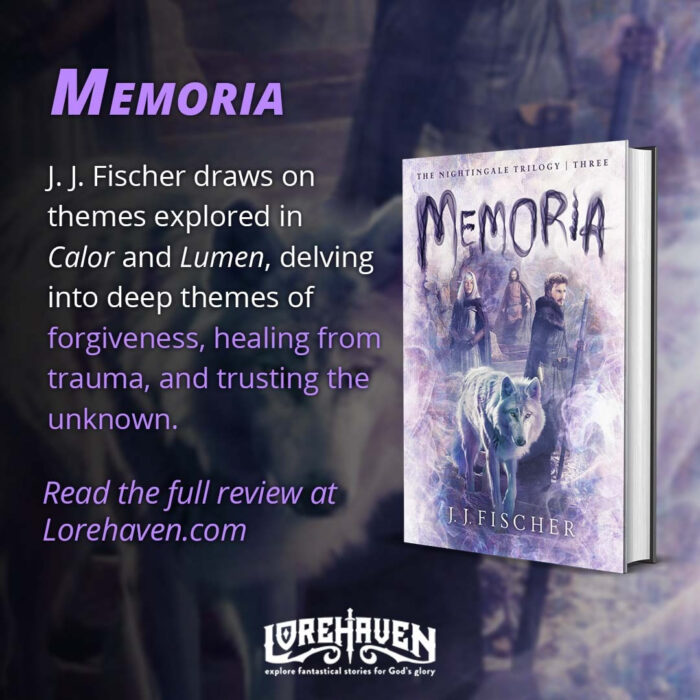
































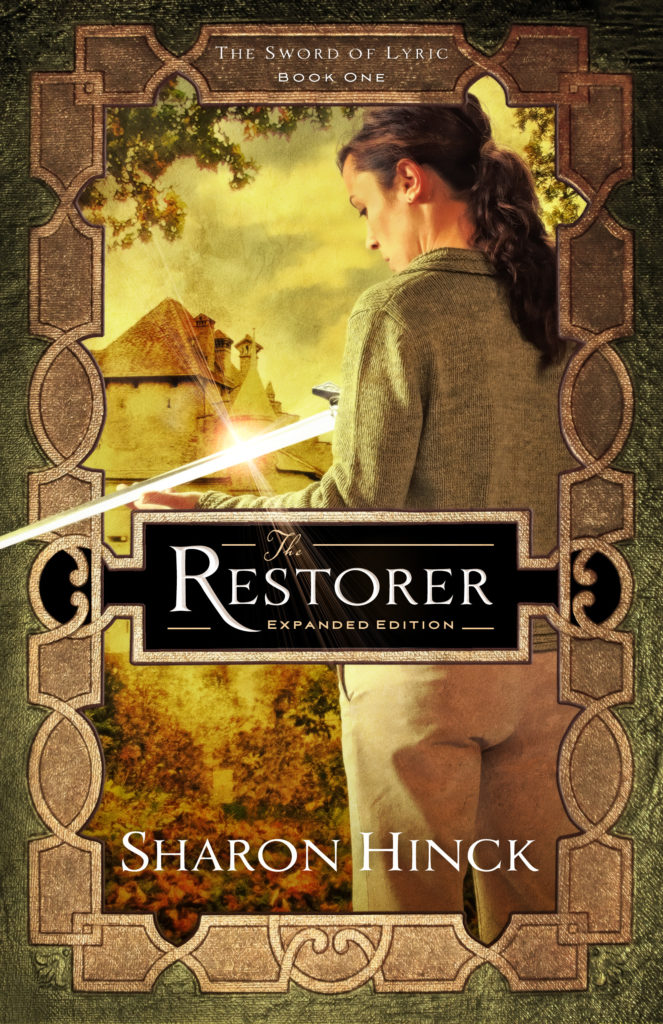

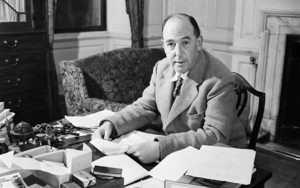












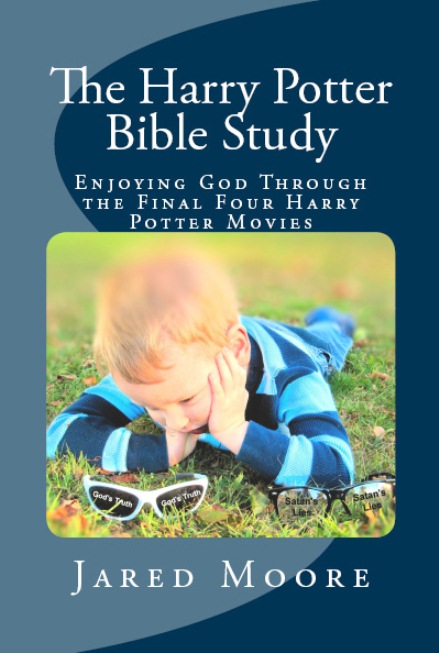

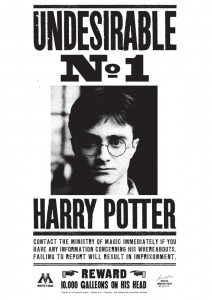
 Jared Moore has served in ministry for 11 years and is currently the pastor of New Salem Baptist Church in Hustonville, Ky. He has an M.A.R. in Biblical Studies from Liberty Baptist Theological Seminary, an M.Div. in Christian Ministry from Southern Baptist Theological Seminary, and is currently completing a Th.M. in Systematic Theology at Southern Baptist Theological Seminary. He and his wife, Amber, reside in Hustonville, Ky., with their two children. If you have any questions or if you are interested in inviting Jared to speak, you may contact him through his website. Jared writes at
Jared Moore has served in ministry for 11 years and is currently the pastor of New Salem Baptist Church in Hustonville, Ky. He has an M.A.R. in Biblical Studies from Liberty Baptist Theological Seminary, an M.Div. in Christian Ministry from Southern Baptist Theological Seminary, and is currently completing a Th.M. in Systematic Theology at Southern Baptist Theological Seminary. He and his wife, Amber, reside in Hustonville, Ky., with their two children. If you have any questions or if you are interested in inviting Jared to speak, you may contact him through his website. Jared writes at 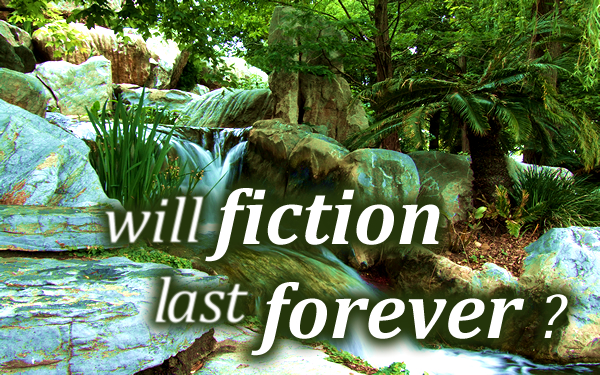



 First, Iâd question that New Earth will have no conflict, that is, disagreement. What we know it wonât have is sin that results from it. For example, author Randy Alcorn offers:
First, Iâd question that New Earth will have no conflict, that is, disagreement. What we know it wonât have is sin that results from it. For example, author Randy Alcorn offers:












